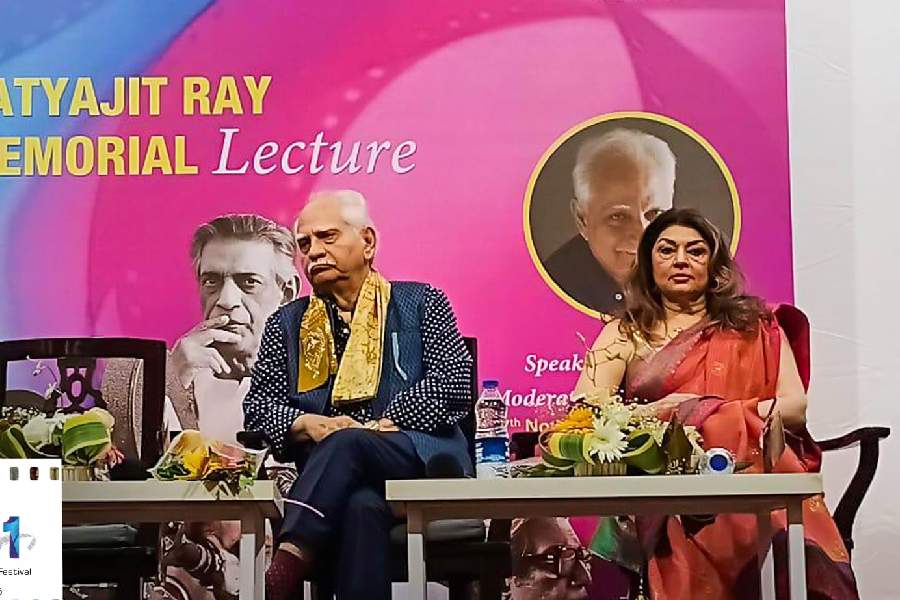Veteran filmmaker Ramesh Sippy Friday said Indian cinema remains “very much alive” and urged young filmmakers to “follow their heart and dreams” while balancing art and commerce, as he delivered the Satyajit Ray Memorial Lecture at the 31st Kolkata International Film Festival.
Speaking at Sisir Mancha, accompanied by his wife, actress Kiran Sippy, and filmmaker Goutam Ghose, the Sholay director reflected on his filmmaking journey and shared anecdotes from the sets of his iconic film, emphasising on the importance of teamwork for the enduring power of storytelling.
“Filmmaking is teamwork. It cannot be anything but teamwork," Sippy said, recalling how everyone from his cinematographer Dwarka Divecha to uncredited workers like Aziz Bhai, “an uneducated gentleman who handled settings”, contributed to the making of Sholay.
“He understood much more than you thought he understood. He gave me exactly the shot I wanted,” he added.
Sippy spoke at length about the making of Sholay, describing how the massacre sequence took 23 days to shoot because of fluctuating weather. “When one looks back at it, it was well worth it,” he said. “I won, along with my entire unit, who was absolutely one behind me.”
He also recalled that the dusk scene of the lighting of the lamp took nearly 15 to 20 nights to capture. “We could only shoot one shot each evening at dusk. If we missed it by a minute or two, the shot was gone,” he said, contrasting the painstaking effort of the 1970s with today’s digital conveniences.
Addressing students and aspiring filmmakers, Sippy urged them to seek inspiration but chart their own paths. “See the good films, get inspired, but as a maker, do your own thing. Follow your heart, follow your mind, keeping a balance between art and commerce,” he said.
He hailed writers Salim–Javed as “fabulous” and among “the best writers ever”, crediting them for elevating his films.
Responding to a question about deleted scenes in Sholay, Sippy said a few minutes were trimmed at the end, and he couldn't do anything about it because it was during the Emergency. “For a director, even one frame is very touching. But you cannot be overtly possessive about it,” he said, adding that the restored version presents the film “as it was originally shot”.
Sippy also talked about an impactful moment from the film where A.K. Hangal’s character mourns his son. "Ek baap ke kandhe pe bete ka janaza — it speaks for itself. It’s loud in expression though mildly spoken,” Sippy said, calling it a reflection of India’s spirit of secular harmony. “We are democratic in the real sense and proud to be so,” he added.
Looking ahead, Sippy hoped for a possible collaboration between "Bombay and Bengal", saying he would be open to “the right kind of project” that appeals to audiences across regions.
The 81-year-old filmmaker, whose career spans over five decades, closed his lecture on an optimistic note about the future of cinema. “Don’t think cinema is dead. It’s very much alive. When there is a good film, the audience will always come back,” he said.










